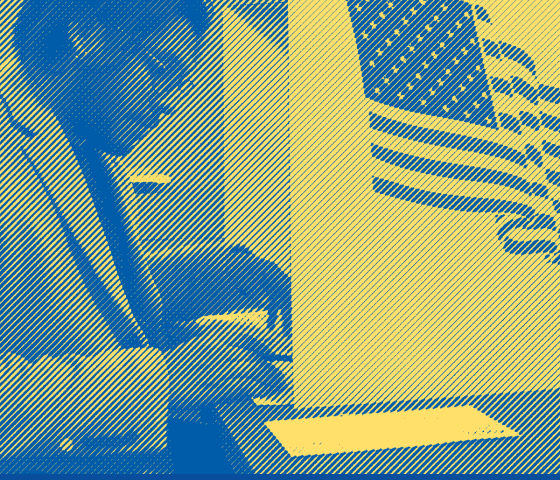We’ve all seen the videos: Black drivers and other people of color targeted by police, harassed, handcuffed, searched, and worse—all based on a flimsy pretext—like failing to fully stop for a stop sign or not signaling for a turn. Increasingly, as the use of cell phone cameras and police body and dash cameras are documenting this abuse of power by law enforcement, it’s becoming ever more clear: Racial profiling is wrong and it must stop.
One example: The video of Des Moines police stopping, handcuffing, and harassing two young Black men, Montray Little and Jared Clinton, has gone viral and sparked outrage. At one point, the officer refuses to even tell Little why he is being stopped.
Racial Profiling Feeds Racial Disparities
It’s racial profiling like this that exacerbates racism in our criminal justice system. That’s why we’ll once again work with partner organizations, including the NAACP, for meaningful legislation that makes it more difficult for law enforcement to wrongly target people of color.
Racial profiling happens when law enforcement stop people of color for suspicion of crime based on perceived race, ethnicity, national origin, or religion. Law enforcement cannot simply stop a person or pull a car over just because they have a “hunch.” After all, one of the core principles of the Fourth Amendment is that the police cannot stop and detain a person without some legal reason. They need probable cause, or reasonable suspicion. Merely being Black or brown is hardly a legal reason to stop a person.
But as the videos and individual complaints from people of color show, discriminatory policing in our state continues. It’s time to pass meaningful legislation to stop racial profiling.
Key Elements of Legislation
Any legislation to ban racial profiling should include language that does the following:
- Specifically bans racial profiling.
- Bans pretextual stops, which are stops made on the pretense of one reason—like a driver going just slightly over the speed limit—but are really made because an officer decided that a driver looked “suspicious,” which often translates simply and wrongly as being a person of color.
- Requires annual data collection and analysis of traffic stops and arrests to determine patterns within neighborhoods, cities, and among individual officers. That data should then be available to the public.
- Creates a citizen review board that can review complaints of profiling and discriminatory policing practices, whether they’re for an entire department, for a particular practice, or for a particular officer.
- Requires annual training for law enforcement on racial profiling and discriminatory policing. The annual training should also cover proper data collection and data reporting.
More than 30 other states have passed anti-racial profiling laws. It’s long past time for Iowa to do the same.
Progress is being made in some parts of the state. In two Iowa cities, Des Moines and University Heights, community groups and the ACLU have called for local action by city councils (which oversee police departments). For example, in November, community members, the ACLU, Iowa Citizens for Community Improvement, LULAC, and the Iowa-Nebraska NAACP publicly called upon the Des Moines City Council to pass an ordinance that would ban police racial profiling. In December, the University Heights City Council had the first reading of its proposed racial profiling ordinance.
A Good Start
And at least two Iowa cities, Iowa City and Davenport, have collected race data on traffic stops and shared that data with the public. Collecting and sharing such data is an important step for government transparency and for holding law enforcement accountable.
At least 15 Iowa police departments have internal racial profiling policies, but internal policies are not enough. A statewide law is needed to ban racial profiling across the entire state.
Our work in Iowa dovetails with the ACLU’s national work on racial profiling. We’re working for passage of data collection and anti-profiling federal legislation and litigating on behalf of people who have been victims of racial profiling by airlines, police, and government agencies.
Published February 2019
